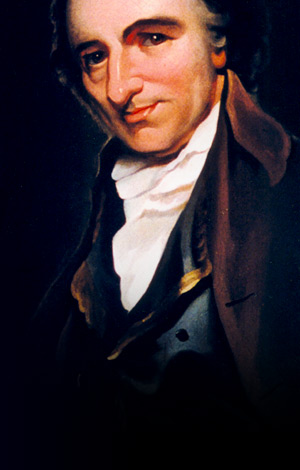Study Guide
Addendum: Universal Principles and the Challenges Of Application
Generally, a universal principle (e.g. non-violence) is one which is beyond a specific context of space and time, and, yet, contains myriads of applications in historical space-time through embodied individual action and collective deliberation. Examples of universal principles in the political realm may include liberty, equality, and justice.
Universal principles may be put into a series of abstract propositions such as in the U.S. Declaration of Independence. Functioning similarly to axioms in mathematics, principles can be the basis of deliberation and pursuit of truth. Thus, as the Declaration states, “We hold these truths to be self-evident...” Principles can provide a moral compass, a North Star, a basis for developing criteria for action, challenging each person to apply them in practice. They are a basis of true education.
Principles can act as ideals. As the philosopher St. Martin noted, “The ideal is only truth at a distance.” Martin Luther King drew on the ideals of the Founding Fathers and the New Testament, as is apparent in his “I have a Dream speech.”
If principles are universal, then they are present, albiet latent, in human beings writ large (in the heart) and can be evoked or re-evoked in different forms in different language or in one’s bearing (beyond language) in particular situations and even different cultures. Ho Chi Ming and other modern revolutionaries called the U.S. Declaration of Independence one of the most revolutionary documents and an inspiration to their respective causes. Corresponding to the universality of “freedom” beyond a particular culture, it has been empirically measured that the effect of feeling free on life satisfaction is universally positive (Fischer and Boer), and the positive effect of feeling free on life satisfaction is a cross-cultural universal (Deci and Ryan 2000, Chirkov, Ryan, Kim, and Kaplan 2003, Haller and Hadler 2004).
The challenge thus lies in creatively relating principles to particulars in personal, civic, and political life. To be potent and actualizing, principles and ideals must be practiced. There are no guaranteed outcomes. This thinking and acting process always concerns the application of human judgment involving persons and situations, and our ability to “sift” and learn from thoughtful applications over time. It is akin to conducting careful scientific experiments with an open outlook with feedback.
William Lee Miller’s volumes on Abraham Lincoln illustrate how one can hone and test a principle in political encounter over time; thus continually deepening understanding of others, while evolving one’s own views. To make a principle “one’s own” is to have “a lived experience”, applying it in particular circumstances, with a keen sensitivity to divergent standpoints. In politics, this calls for each committed participant to listen, reflect, and seek common ground in principles, policies, and procedures in order to build a common nexus of understanding as well as visible communities of consensus.
The politics of principle involves the dynamics of yielding and asserting, the art of imaginative empathy, as well as that of rational argument. Above all, it requires transparent acts of self-correction without fuss and fanfare. By honing recognized principles in the fires of dialogue, disagreement, and responsible practices, the polis can be can strengthened in the collective quest for the common good. Such public engagement can also deepen one’s own one clarity and understanding of any given principle and its range of application.
It is through the test of humility and honesty that one learns not to see a principle as simply an image or “golden calf” of investing one’s ego with merely the outer image, with overly generalized, statistically determined theories of human nature, or facile slogans or “sound-bites”. Instead of falling prey to self-righteousness—or perhaps worse-- to the imperious urge for immediate, all-encompassing solutions, one should constructively engage other minds in genuine attempts to deliberate, to “think through” a fresh application of a lasting principle, including encompassing relations with other principles, that approximates the common good in living situations or a wide application of pursuing truth. Thus, in the example of exploring “freedom”, one might pursue “freedom” with the intent of making sure that each person has sufficient opportunity and economic means to pursue it.
Without principles, social interaction, however democratic, is rudderless and politics without principle descends into excess passion, overreliance on charismatic leaders, and the rigid partialities of self-interest and expediency. Thus, for example, is a rationale for a Supreme Court which must decide whether political deliberations and legislative enactments resonate with our highest legal principles.
Raghavan Iyer writes, “One can believe in the principle and lower one’s sights in practice, not hypocritically, but from an awareness that the achievement of any given time, place, and context will imperfectly reflect a worthy ideal.” Because persons have different viewpoints, great leaders must be flexible in their creative, fresh application of principles to particular circumstances in order to create unity for a greater common good. Like Paine and Lincoln, unity may involve self-sacrifice wherever the interests of others are to be benefitted by our endurance. By stating reasons in open discussion based on principled thinking, one retains one’s own integrity while, even if blocked, potentially influencing lines of reasoning and significant events in the future.


